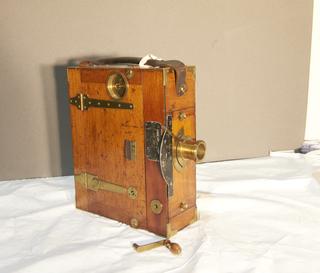
Ernest F. Moy Limited 1895 - 2013
- occupation:
- Manufacturer of cine cameras
- Nationality:
- British
1895-2013, manufacturer of cine cameras, Braille transcribers and electronic components, Camden Town, London
1895-2013, manufacturer of cine cameras, Braille transcribers and electronic components, Camden Town, London